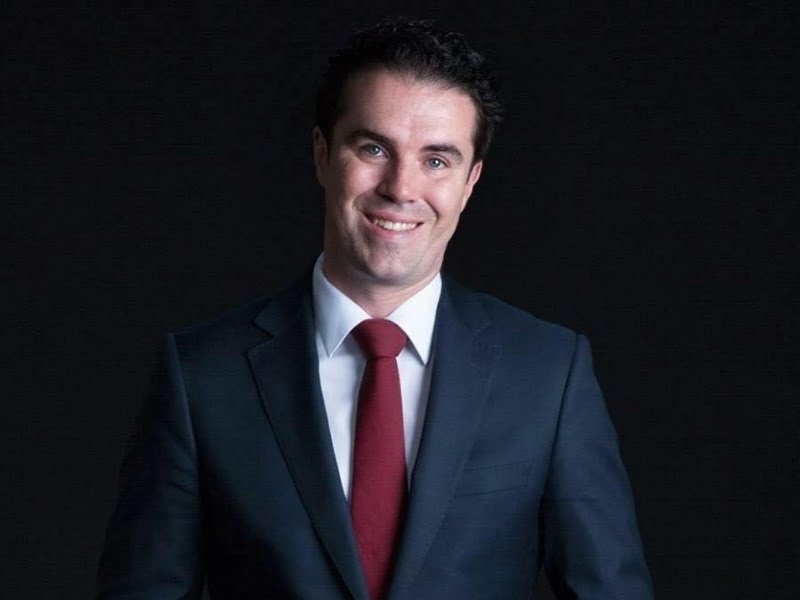There is a growing contest between democracies and a “new breed of autocrat” in the technology space, and Australia can’t afford to be “recalcitrant” in the global debate on this issue, shadow assistant cybersecurity minister Tim Watts says.
In a speech to the Australian Information Security Association (AISA) Cyber Conference 2021 on Wednesday, Mr Watts said there needed to be far more detail in global agreements centred on upholding democracy on the internet, and called for a renewed push locally on these issues, including through a bolstered national security committee and a single entity focused on cybersecurity.
Mr Watts shaped the big picture speech around the evolving relationship between democracy, autocracy and tech policy, saying that democratic nations are struggling to move away from the initial libertarian view of the online world.
“In parallel to the increasing exercise of state power over the internet in authoritarian countries, the vision of an internet free from government intervention and control championed by its early trailblazers in the United States has also reached the end of its useful life in democratic states,” Mr Watts said.
“What is concerning though is that while the libertarian vision of the early internet has now been universally rejected by democratic nations, nothing has emerged to replace it as a practical philosophical framework to guide the exercise of democratic sovereignty over the internet. Beyond interoperability of the underlying protocols of the internet, we are a long way from a consensus about what this actually means.”

The Quad countries – Australia, India, Japan and the US – recently signed a technology design, development, governance and use agreement at a Leaders’ Summit in September. This agreement said that “the ways in which technology is designed, developed, governed, and used should be shaped by our shared democratic values and respect for universal human rights”.
Mr Watts hailed this as an “important step forward”, but said far more clarity and detail is needed on what ensuring democratic values online actually means.
“This is all well and good, but the statement doesn’t do much to articulate what these ‘shared democratic values’ are in the context of the internet, nor why they are better than the alternatives,” Mr Watts said.
The statement does include support for a “multi-stakeholder approach” aligning with “universal values” such as freedom of expression and autonomy, and that technology “should not be misused or abused for malicious activities”.
“But a lot is left unsaid … what is it that makes surveillance ‘authoritarian’ in the eyes of the member states? We’ve got plenty more to do,” he said.
US President Joe Biden has flagged that the Summit for Democracy in December will include the establishment of an alliance for the future of the internet to “develop and promote a new and better vision of an open, trusted and secure internet that promotes core democratic values and respect for human rights”.
Mr Watts called on the federal government to play a prominent role in developing this agreement.
“Australia should be working closely and constructively with our allies to advance this agenda. We have a real stake in the success of these efforts to forge a new vision for an open internet where state intervention embeds democratic value.”
“We can’t afford to be recalcitrant in these future shaping discussions in the same way that we have been on climate change.”
Mr Watts said that efforts to push back against “techno-authoritarianism is in our own backyard”, including through an expansion of the powers of the Parliamentary Joint Committee on Intelligence and Security (PJCIS).
This expansion should include increasing its oversight role to all ten intelligence agencies, including the intelligence functions of the AFP and Home Affairs, and the ability for the committee to initiate its own inquiries.
“These powers are particularly important as we’ve already seen some troubling examples in which the internet culture of some agencies has failed to understand the fundamental importance of democratic accountability on the exercise of these powers,” Mr Watts said.
There also needs to be a single entity within the federal government with lead responsibility and accountability to combat growing cyber threats.
Australia remains “asleep at the wheel” on funding research on critical technologies, Mr Watts also said, and there needs to be far more investment in this space.
“Democratic nations, including Australia, need a renewed focus on state investment in critical technology. Not just general public investment in basic research, but direction-setting, strategic investment in the critical technologies that will underpin our future economic prosperity and national security,” he said.
“We can’t go on as the only country in strategic groupings like AUKUS and the Quad without a national strategy to develop domestic industries in critical technologies like quantum.”
Just hours after Mr Watts’ speech, Prime Minister Scott Morrison announced that Australian Chief Scientist Cathy Foley has been tasked with developing a quantum strategy, as part of a wider focus on critical technologies and a $100 million investment in quantum computing research.
Do you know more? Contact James Riley via Email.

